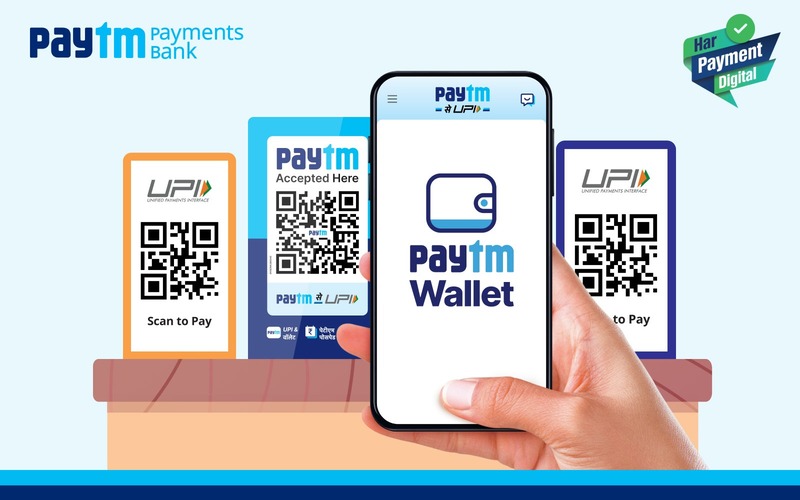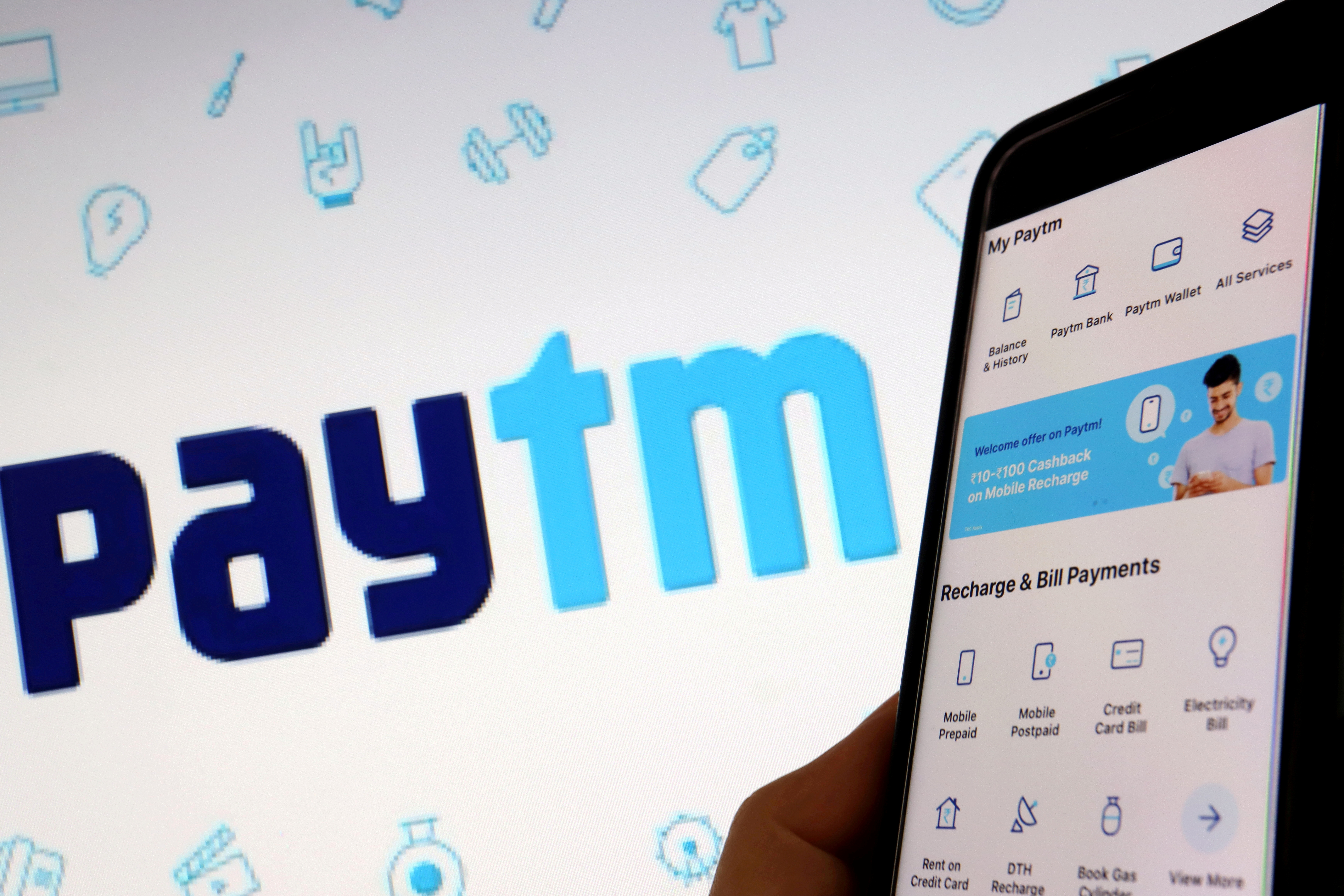RBI Cracks The Whip Again, Visa And Mastercard Ordered To Halt Card-Based Commercial Payments; Issues Fresh Directives On Paytm Payments Bank Wallet And Services
The Reserve Bank Of India, RBI, has lately been active with its regulatory actions, particularly in the fintech sector. Following its crackdown on Paytm, the RBI has now directed major card networks, Visa and Mastercard, to suspend card-based commercial payments facilitated through certain channels. The move aims to address concerns regarding unauthorized transactions and regulatory compliance within India's digital payment ecosystem.

In a recent move echoing regulatory actions against Paytm, the Reserve Bank of India, RBI has issued directives to major card networks, Visa and Mastercard, to suspend card-based commercial payments facilitated through payment service providers and companies.
Though not officially announced by the RBI, the rationale behind this directive seems to stem from concerns raised by fintech companies operating in the sector.
Reports suggest that certain transactions are taking place at establishments not authorized to accept such payments.
According to banking sources, despite lacking authorization, numerous fintech firms allegedly enable customers to utilize their cards for various payments such as tuition fees and rentals; thus potentially violating the Payment and Settlement Systems Act of 2007.

Visa, in correspondence with fintechs, explicitly stated, “We have been directed by the regulator to ensure that all Business Payment Service Provider (BPSP) transactions be kept in abeyance till further notice.”
The communication stressed the immediate suspension of merchants registered with Visa until instructed otherwise; failing to comply with these directives could lead to regulatory sanctions and non-compliance assessments under Visa rules.
Fintech insiders speculate that the RBI’s intention is to enforce regulatory compliance among fintech players and service providers, thereby preventing fraudulent or unauthorized transactions within the digital ecosystem.
An official suggested that Know Your Customer (KYC) issues might be a concern, especially given the central bank’s push for full KYC compliance in all digital transactions.
Paytm At The Crux Of RBI Moves
The directive comes after the RBI’s recent actions against Paytm.
The RBI had previously restricted Paytm from offering its core services, including accounts and wallets, starting in March, citing numerous KYC and other compliance issues.
In a related development, the RBI extended the deadline for restrictions imposed on Paytm Payments Bank (PPBL) until March 15, 2024.
Alongside this extension, the RBI issued a detailed list of Frequently Asked Questions (FAQs) for PPBL customers – while customers cannot transfer or deposit money into PPBL accounts after March 15, they can continue to utilize existing funds until exhausted.
This action follows the RBI’s earlier prohibition on Paytm Payments Bank from accepting deposits or top-ups in any customer account, prepaid instruments, wallets, FASTags, and NCMC cards after February 29, 2024.
The decision was attributed to continued non-compliance and material concerns.

Understanding the Impact of RBI’s Directives on Paytm Payments Bank Wallet and Services
Regulatory bodies like the RBI play a crucial role in ensuring the stability and integrity of the banking system.
As the RBI continues to issue a series of directives impacting various services offered by Paytm Payments Bank (PPBL), aimed at enhancing regulatory compliance and safeguarding customer interests, here are the key points outlined by the RBI and their implications for users of PPBL’s wallet and services
Changes to Paytm Payments Bank Wallet
Effective March 15, 2024, several changes will come into effect regarding the usage of Paytm Payments Bank Wallet –
- Users will no longer be able to top-up or transfer funds into the wallet, except for cashbacks or refunds.
- Existing wallet funds can be utilized for transactions, withdrawals, or transfers to other wallets or bank accounts.
- Minimum KYC wallets will be limited to merchant payments only.
Closure and Balance Transfer –
Customers have the option to close their Paytm Payments Bank wallet and transfer the remaining balance to another bank account.
Full KYC wallet holders can initiate this process through the bank’s app or by visiting a branch.
Impact on FASTag Issued by PPBL –
FASTags issued by PPBL can be used for toll payments until the available balance is exhausted.
However, no further funding or top-ups will be allowed after March 15, 2024. Customers are advised to procure a new FASTag from another bank to avoid inconvenience.

Bank Accounts with Paytm Payments Bank –
Customers with savings or current accounts can continue to use, withdraw, or transfer funds until March 15, 2024.
However, no deposits or credits other than interest, cashbacks, or sweep-ins from partner banks will be allowed post this date.
Money Transfer and Debit Mandates –
After March 15, 2024, customers will not be able to transfer funds into their PPBL accounts.
However, withdrawals via UPI/IMPS and execution of debit mandates will continue as long as the balance is available.
Merchants’ Transactions –
Merchants accepting payments via Paytm QR code, soundbox, or POS terminal linked to a non-PPBL account can continue using the setup post-March 15, 2024.
However, credits into their PPBL accounts will be restricted to specific transactions like refunds or cashbacks.
Onboarding of New Customers –
PPBL is prohibited from onboarding new customers for any services since March 11, 2022, as per RBI directives.
Other Services and Cards –
NCMC cards issued by PPBL can be used until March 15, 2024, with no top-up option thereafter, while Aadhar-enabled Payment System (AePS) withdrawals will remain unaffected.
Accounts Frozen or Lien Marked –
Relevant law enforcement or judicial orders will govern accounts or wallets with liens or freezes.
PPBL is directed to allow withdrawals or transfers to other bank accounts as per available balances.




